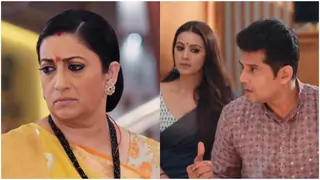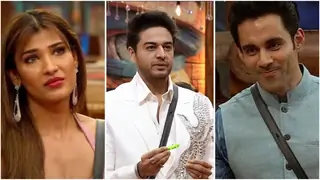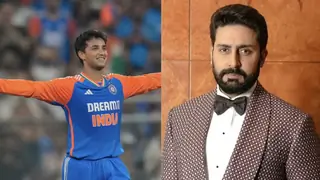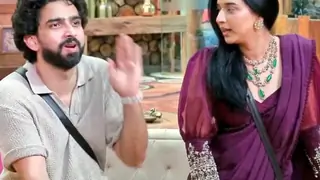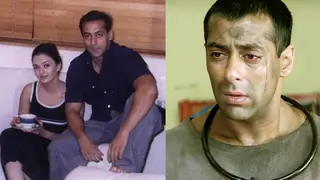I have deliberately decided to post this final part of the Foorthpath tales trilogy on its own thread. It is effectively a stand alone story that while set in the same world as the other two parts of the trilogy, deals with quite a different theme.
The last part of the trilogy is set in the same Footpath Tales world. It sets aside Kiran, Joseph, Circuit Dev, Masima etc. to introduce new players living on the margins in Delhi. This story while keeping in mind the dark underbelly of the capital city, explores a different but important dimension of human existence. It could be termed a modern day morality tale featuring gangsters and a holy man'.
FOOTPATH TALES 3: MAHAAN
Iqbal Choudhry's auto rickshaw came to a halt in the heart of the Nizamuddin basti of Old Delhi. The crowded alleys of the basti, surround the tomb of Hazrat Nizamuddin Auliya, one of India's most revered Sufi saints. The district's heritage had always held a special place in the hearts of Indians. Thousands of Muslims, significant numbers of Hindus and even Christians visited the area to pay homage to and pray at the mausoleum of the Sufi saint, Nizamuddin Auliya, after whom the basti was named. The locality also housed the tombs of the poets Mirza Ghalib and Amir Khusro, not to mention Humayun's tomb, and that of Mughal princess Jehan Ara Begum. However the young man had not come to pay homage to any of these iconic historical figures. He had travelled thousands of miles to pay his respects to a barely living soul who in Iqbal's mind rivalled them all in personal significance.
The lane up ahead was too narrow to permit further progress although the rickshaw-wallah would not have been deterred from trying. Considering that he had flown all the way from New York, a short distance on foot to reach his destination was not any kind of hardship for Iqbal. He paid off the rickshaw and began to walk the rest of the way. He was very familiar with the basti with its smell of decay. The air was laced with the mixed aroma of domestic cooking and that of meat cooking in restaurants and street stalls. Butcher shops were almost as commonplace as the small shops or stalls with kebabs turning over charcoal grills. Iqbal noticed the preponderance of men of all ages and even young boys wearing Muslim topis (taqiyahs). The older men often supported unkempt beards topped by bristly upper lips. The older men stood out from the younger ones because of the eye-catching henna red colour of their beards and hair. Western clothes here were an oddity. That was one reason Iqbal came dressed like the locals, except that his long white kurta and loose-fitting pyjama trousers were made to measure and expensive. Many of the women, at least those out in public, were covered from head to toe in black burqas. Despite the fact that poverty in India had no religious affiliation, this was a predominantly Muslim district.
There was already a throng of children and other curious onlookers wanting to know what this stranger in his expensively tailored kurta was doing striding down one of the poorest areas of Delhi. Iqbal smiled affectionately at the children following him out of curiosity as he made his way down the narrow lane. His presence in the area was incongruous to them since outsiders, especially the wealthy ones never ventured here. They tended to confine themselves to the restaurant district, famous for its cuisine. Little did they know that twenty years earlier Iqbal had been numbered amongst the skinny, malnourished youngsters in their tattered clothes using the alleyways and dirt strewn lanes as their playground. This was where he had been born, cut his first tooth, skinned his knees, formed his friendships and learned to deal with the reality of deprivation. Growing up he had had little food, little education and even poorer prospects. Now he was a successful IT specialist working in New York. He had crossed half the globe to pay his respects to the man who had catalysed the dramatic and irrevocable change in his fortunes.
As Iqbal drew up to his destination, he noticed the crowd of people milling about outside. There were women and men, Hindu and Muslim, young and old, all with anxious and sad faces. Some of the men had their hands cupped in prayer, others steepled, calling upon their preferred deity to spare the life of a frail old man that had transformed the lives of so many in their impoverished basti. A few of the men and women were visibly upset and near to tears despite others attempting to bolster their spirits with words and reassuring hugs. As Iqbal pushed his way through the throng to reach the entrance to the tiny dwelling it was plain to see that many lives other than Iqbal's had been touched by the same inspiring individual.
The tiny room was overcrowded with some ten people standing, waiting anxiously while a doctor attended a frail bearded old man who lay prostrate and wheezing with laboured breaths. Although Iqbal didn't recognise any of the faces in the room, he knew that each and every one of them was here for the same reason as he. They had come to say their final goodbyes and be with a sick old man soon to depart this life.
In the crowded room was Ritu who had travelled up all the way from Mumbai. Though she had deliberately dressed down to be here, she was in reality a style icon for many young Indian women, and ran a chain of successful stores selling fashionable clothes. It had been rumoured she had advised some Bollywood starlets about fashion and specifically designed outfits for several A list actors. Now she was back to the place of her birth, wishing to be in the presence of the man who had nurtured her creative artistic skills and boosted her self-confidence enough for her to become successful.
Ritu was in conversation with Salman, a man in his late twenties who still lived in Delhi. The young man had overcome his disability and gone on to become an engineer because of the assistance of the old man whose life was fading despite the careful attention of the doctor present. Salman with a chuckle shared with Ritu how scared he had once been with numbers or any type of mathematical calculation. Thanks to the dying man, this hurdle was overcome and in due course he had gone on to become a successful engineer. Not forgetting his roots and own impediment to success, he had devoted a great deal of his energies to address the needs of poor Indians with physical disabilities.
All the people in the room, and many outside had similar tales to tell. Not all of them had reached such dizzying heights in terms of careers as Iqbal, Ritu and Salman but all had been touched in some way by the man known in Nizamuddin, variously as Guruji, Acharya, Devta, Farishta or simply, Masterji. To this day no one knew much about the man and not surprisingly legends had developed about him and his prowess. It was said he had first appeared out of the blue on the streets of the district some 30 years ago. At that time he had been middle aged with a bald crown surrounded by salt and pepper hair and he had supported a short, trimmed beard. Now he was totally bald save for a few thin wisps of white hair, a bedraggled white beard and emaciated features. His body was a bag of skin and bones.
Initially, when he made his appearance in the area, those many years ago, he would often stop and watch the children play, sometimes cheering them on and other times silently observing. When they became accustomed to his presence, they began referring their minor disputes to him for adjudication. Occasionally he would sit sketching on a notepad, scenes of children playing gili danda, kabbadi, cricket or football. He soothed grazed knees, and bruised egos equally well. During the rest periods between games, he often told the children stories, some modern, and some old, some from the Quran, and others from the Mahabharata or Ramayana.
People, especially the children often saw him around the restaurants in the district. Many outsiders came from near and far to frequent the restaurants that had built a justifiable reputation for their delicious meat dishes, including biryanis. The richer patrons were usually mobbed by children and not a few adults, begging for money. The visitors with a conscience often donated money to a local masjid to feed the needy. The local restaurants in partnership with the masjids provided the meals that nourished many a child and the occasional adult too. It was here that Masterji was often seen helping the restaurant staff to distribute the food and tidy up the mess afterwards. In this way he established he was a part of the community and cared for it deeply - particularly the children. The young children quickly lost their fear of him. He often fed them with his own hands and laughed and joked with them. Slowly but surely news about the man selflessness spread across the basti.
He had initially started by posing questions to one or two of the children about rudimentary mathematical sums. The children were curious to know the quick way of adding all the numbers from one to ten - or how to draw a large perfect circle on the ground. In a short space of time, he was informally teaching small groups of children the basics of reading, writing and mathematics. These informal classes were held out in the open and were free to anyone prepared to participate whether or not they already attended primary school. Occasionally an adult or two would sit in on the lesson too, partly out of curiosity or embarrassment at their own ignorance of the basics of education. These lessons was not the dry, boring, rote learning variety characteristic of most schools. These lessons were the type of learning that the children were eager to participate in since they were made relevant to their lives and interests as well as often being fun. While new faces appeared and familiar ones disappeared there was a significant core of children regularly attending these classes. The fundamentals of literacy and numeracy taught by the man were the spring boards that aided some of the children to succeed where previously they would have been locked into the cycle of poverty, under-employment and premature illness or death.
Slowly and inevitably the adults in the district learned of the man the children called Masterji and quickly the name caught on because he had never openly declared his real name. They reached out to him as a man of wisdom and learning and he in turn supported the struggling parents. He gave them succour in times of distress, advised them how best to support their children, as well as tackle the bureaucracy that beset so many going about their daily lives. It was clear that the man had no specific paid job nor any funds to draw upon, yet he never requested any form of payment for what he did for the community. The people in the district took him to their hearts and showed their appreciation and gratitude by ensuring that one way or another he was fed at least two simple meals a day.
Since so little was known about him with any certainty, stories and conjectures about Masterji multiplied over the years and spread among the inhabitants of Nizamuddin. Many Muslims were convinced he was either a farishta (angel) sent by Allah, or at the very least a saint or pir. The Hindus claimed he was a modern avatar of Vishnu although they were prepared to accept he could be a saint. In the absence of hard facts stories and speculation about the man continued to multiply.
One persistent story alleged he saved the life of the local criminal don' This story existed in a variety of versions and one believed the version that was most suited to one's moral compass. Nevertheless there was unanimous agreement that he only became involved with the underworld boss because the collateral damage of the fighting between rival criminal gangs had been brought to his attention by numerous parents. Innocent people were being injured in the crossfire between various factions. Many parents expressed concerns about children being recruited into drug couriering and other criminal activities. At the behest of such people Masterji made tentative approaches towards the heads of two of the most powerful rival gangs. Due to his reputation and charisma, it was not long before he had arranged a parlay between the two main gang protagonists. Masterji was a neutral third party who could be trusted. From here on the stories of how that meeting transpired varied markedly, but here is one version that was more inventive than many others...
Unfortunately all parties to the meeting facilitated by the teacher weren't honest and open in intent. When Suleiman the main contender for the title of don of Nizamuddin, met with his challenger Jagga, according to all sensible people, bloodshed was on the cards. Such opinions were not entirely wrong. A great deal of blood did indeed flow, some of it during and a great deal more, following the meeting. Had it not been for the quick reflexes of Masterji, Jagga's blade would have easily penetrated the Suleiman's heart. Instead the blade speared the teacher's hand which had been interposed between the two gang lords. Jagga paid for his dishonourable mistake with an untimely, slow and painful death by bleeding out through the multiple, deep wounds inflicted upon him. After the brief tussle for power between the main gangs, it only remained for Suleiman to settle his debt with Masterji.
The don was 25 years old, with a torso sculpted through a regime of rigorous exercise and weight training. He was very tall, clean shaven and immaculately groomed. He may have been soft spoken but there was no mistaking his menace and power.
"So, old man...How much do you want for saving my life?" The language was blunt and to the point.
"I didn't save your life for money, Suleiman." Everyone except Masterji addressed him as boss' or some other title. No one else would have dared to use the criminal's first name.
"I know and I'm grateful but I'm still indebted to you for what you did." The comment was mellower and less strident than his first.
"That's not my problem," was the dismissive response.
"Don't be like that, old man. Pick a figure and relieve me of my debt. I can be very generous. There must be something you want or need."
"Nothing comes to mind," replied the teacher through gritted teeth as he grabbed his injured hand when he felt a hot jolt of pain course through it. The analgesics prescribed by the doctor were not strong enough to entirely numb the pain of his injury.
Suleiman the don waited till the spasm of pain had subsided and the older man was himself again. "But you still sleep on the street, old man. Wouldn't it be better if there was a roof over your head?"
"My needs are not important. I neither want nor need anything for myself."
"Then, for someone else..?"
Suleiman smiled, thinking the old man wants something for his wife or children. In his experience some people feigned disinterest then asked for their family to be generously rewarded. Unbeknownst to the don, Masterji had no family that anyone knew of.
"Yes, there is something you can do that would benefit others."
Again the don smiled acknowledging to himself that the old man was no different from any other he had come across. This was an ordinary man with pretentions of holiness, the don cynically surmised.
"I thought as much. So who is to be the beneficiary? And how much is it going to cost me?"
"The community here will be the beneficiary. As to how much..?" The older man made a face and shrugged his shoulders.
"Tell me more."
"Suleiman, I feel like a herdsman at times looking after his cattle. People like you and your minions are the mosquitoes sucking the blood of these helpless and weak cattle that I tend daily."
Had anyone else spoken to him in this manner, they would have had their tongue ripped from their mouth, but the don decided to indulge the older man.
"Would you have me give up my business - my only way of earning a living?" When the teacher made no comment, Suleiman added, "I can barely read or write, and I have no special skills worth a damn in anything other than what I do. I currently have a little boy and girl and a third child is on the way. I need to make a living, old man."
"Yes, I understand. We all need to eat and provide for our families. I'm asking that you consider other ways of earning your money."
"And I told you that I am not suited to any other job!" Why did these meddlesome do-gooders never understand, the don asked himself.
"You're not listening to me, Suleiman. Earn a living but do it by using your existing money to make more in a legitimate way rather than through Dadagiri."
"And exactly how would I manage that?" came the defiant question.
"Invest your ill-gotten gains in legitimate businesses and the stock market. That way your money will grow and that of some businesses, and overall, many ordinary peoples' lives will be improved. There would be great merit in such a move."
"I can't just give up what I do," insisted the don.
"Not even to save your soul?"
"I'm trying to make a living here and you're talking about my soul after I'm dead! Besides, I know nothing about business investments."
"You have the money to hire a reputable financial consultant. But you will have to give up your criminal activities."
"If I withdraw from my current business activities, there will be a turf war and many people will be killed or maimed. There's no guarantee my successor will be as nice a person as I am," the don advised, smiling and showing enough teeth to scare any ordinary resident of Nizamuddin.
"Then we have nothing more to discuss, Suleiman."
When the teacher got up and walked away, it became clear to the don that this was not a negotiation tactic. The don of Nizamuddin was left wondering what kind of man he had been dealing with. However in time he would learn the answer to his own question.
The matter was not resolved until almost a year later by which time the teacher had forgotten the whole matter. One of the don's lieutenants tracked down Masterji while he was breaking up a scuffle between two young lads. The youngsters suddenly fell silent and became fearful for their lives on seeing the senior gang member. Their teacher was totally unperturbed.
"Masterji," the lieutenant said politely and dipping his head in a respectful greeting. "Don sent me to give you this." An envelope was handed to the teacher. The watching children were wide-eyed and gasped in awe that Masterji had such important connections.
"Thank you, beta, but tell the don I won't accept any reward from him." The older man handed back the envelope. "Tell your boss I stand by what I told him last time we spoke."
"Masterji, Don anticipated your reaction. He told me to say your advice was sound and worth following. He is doing what you asked of him. A letter inside explains everything... I must go now Masterji. So, here, please take the package," said the young man.
At this point, curiously the lieutenant stooped his head in front of the teacher and waited. Masterji noticing the bowed head, reached out and placed the palm of his hand on the man's head and gave a traditional blessing. The young man felt honoured to be blessed by the holy man, and smiled happily before he turned and quietly left. The children looking on could only marvel at the fact that a poor homeless middle aged man could command such respected from even powerful criminals.
As soon as the man was out of sight, the children's curiosity got the better of them, their dispute now forgotten. They wanted to know what was in the envelope from the don. Masterji instead of opening it, slipped it into a pocket and continued from where he had left off with the children. To the teacher mathematical tables were more important than a message from the don. Only later when he was on his own did the teacher examine the contents of the envelope. The envelope contained a lease in the name of Masterji for a small dwelling in the heart of Nizamuddin, and a letter explaining the don's change of heart. The criminal boss would be slowly disinvesting from a major share of his illegal activities and had already begun investing in legitimate businesses as Masterji had advised. However the don would for stability's sake remain the kingpin in the area. While Suleiman remained the kingpin, the teacher was guaranteed his protection.
While Masterji was pleased that his work in progress', the don, was showing positive signs of change, not everyone was happy at this turn of events. Several of the don's lieutenants felt their livelihood and way of life threatened. The boldest, Vivek made a direct challenge. For a few days violence and bloodshed followed the failed assassination attempt that intended to remove Suleiman. Three days later, Vivek's mutilated body was unceremoniously dumped outside the district sending the clear message he was no longer a part of the Nizamuddin community. All the other dissenters quickly fell into line.
Such associations with the criminal underworld and other acts by Masterji generated much discussion among his admirers and acolytes. More than ever before his students and others wanted know his moral stance. People were curious to learn exactly which religion he subscribed to. His enigmatic reply of "All and none" confounded some and amused others. Essentially it evaded the labels that people wished to put on him. It was already known Masterji's greeting and examples were always tailored to the religious sensibilities of his audience. While he often posed moral conundrums, on no occasion had he ever explicitly stated his own personal religious beliefs. Some mischief makers contended he was actually an atheist with a strong moral sense and a sensitivity to those religiously inclined. While the Muslims claimed him as one of their own, so did the Hindus. However in an India where Hindus regularly visited Muslim shrines and vice versa, this enigmatic, wise and kind soul that was Masterji was embraced by all faiths.
These discussions led to others more directly concerned with the morality of consorting with known criminals and murderers. Why did Masterji never condemn criminality outright? An act of thievery, or prostitution was clearly morally wrong as well as being a criminal offence argued the moral absolutists. Masterji's argument was that survival was the primary imperative of all human beings. If the structures of society were oppressive and discriminatory towards the poor and dispossessed, people could not be blamed for stealing to ensure that a family could eat. Why did people blame the woman who sold her body to feed herself and her children when the men who created the demand for prostitutes were considered blameless? Even when women refused to take up this degrading profession, women and girls were frequently abducted and coerced to work in brothels to service men. The moral turpitude generated by the guru's discussions was difficult for many people to cope with and they often retreated behind their familiar religious beliefs, traditions and practices. The maulanas and pandits had done their jobs too well to be dethroned.
Even to take a life was not always wrong, Masterji would remind people. He would argue that the context meant everything. After all, Masterji pointed out, soldiers kill in times of war, and legal authorities execute murderers even though their victims cannot be brought back through such forms of punishment. While respecting people's religions, in many ways he challenged how and why people behaved the way they did. For many this was unsettling. The teacher's challenge went as far as questioning the motives behind acts that were generally considered morally praiseworthy - like helping someone, showing an act of kindness or righting a wrong. The guru would constantly remind adults and children alike, that if one performed a good deed in the hope of gaining the ultimate reward of a passage to heaven or a better reincarnation in the next life, these good deeds were morally tainted. The guru's stance was that good deed ought to be performed because they were the correct course of action and there should be absolutely no expectation of a quick or deferred reward. That was a lesson taught over decades that still failed to change the behaviour of many in the community.
***********************************************************************************
Since he arrived in the tiny room an hour earlier, Iqbal noticed that there appeared to be a rotation of different people coming and going. New faces came, chatted briefly with others, paid their respects to Masterji and left. Sometimes if they were lucky the sick old man recognised them, but most had to live with the knowledge that while students always remembered, a popular teacher did not necessarily recognise all of his or her numerous students. The IT specialist from the U.S. was not personally troubled about whether or not he was recognised. It was enough he could look upon the face that inspired him, one last time.
Iqbal squeezed his way to the foot of the old man's bed. He bent down and touched Masterji's feet as a sign of respect and deference as many others had done before him. In accordance with his own religious beliefs, he silently prayed that his mentor's passage to heaven would be smooth. Even as he offered up the prayer he could not help but remember the fierce debates among his childhood friends about whether or not Masterji would ever be granted a place in heaven.
No one knew about the great teacher's origins or life experiences before suddenly one day he arrived on the scene in Nizamuddin. That afforded numerous opportunities for conjecture and myth making. According to some, the man was from Mumbai. This they argued was obvious from his slight accent and patterns of speech. Others went further and devised a whole story of a young man and his family struck by a tragedy that left only him alive. Some people were not content with tragedy so had postulated some criminal act followed by a term in prison during which time his wife, either in despair tragically took her own life, or abandoned her husband out of shame. This led him to leave Mumbai and begin a new life far away. Those who believed this version of events put the Masterji's charitable behaviour down to doing penance for the sin he had committed, even though he had served his time in prison. Still others not quite content with the details of this version of the backstory, suggested that during his imprisonment Masterji had undergone a spiritual reformation and found a new purpose in life. This all of course opened up the argument about whether in the light of his past gross misdeeds, the man deserved to go to heaven.
Iqbal had no time for such speculations. He accepted Masterji as an enigma, but a force for good. The acolyte did not have any truck with those who built up his guru just to tear him down. Although Iqbal thought he could live with moral grey areas, he was not fully cognizant of the deals done by Masterji to secure the welfare of some of his ablest students, including Iqbal. If he had known all the facts perhaps he would have thought less of the man than he currently did.
After the lease to the tiny flat was acknowledged by the teacher, slowly the don and he drew closer to each other. The real friendship began with an invitation to a child's fifth birthday party. The child was the don's eldest son, Azaad. Because of the successes of his investments in legitimate businesses, the don was more inclined to take further advice and at least consider ideas put to him by the teacher. By the time the third Eid-ul-Fitre came round, and his presence at the don's family celebrations was accepted as normal and essential, the wise old man decided to make an unusual proposal. There were one or two promising students capable of achieving university degrees but lacked the funds to attend institutions of higher learning. Masterji asked the don to pay these costs as both a gesture of his magnanimity and a step towards the expiation of his past sins. The money was miniscule in relation to the total wealth the kingpin of Nizamuddin held in banks and investments. The teacher had spoken eloquently of the Quran's exhortation to be charitable, and reminded the don of the responsibilities of zakat. It was an argument that appealed and pleased the Muslim in Suleiman, despite his criminal life. He warmed to the man who was more interested in saving his soul than accepting his money. The don's involvement would be kept anonymous since some families might have refused money they considered to be tainted. So step by step the power balance between the criminal boss and the guru subtly altered. The guru was no longer addressed as old man' but Masterji' and his advice was always listened to and sometimes even implemented.
Iqbal had completed his last silent prayer when he noted a change in atmosphere. It took him a moment to realise that the small crowd outside had suddenly and collectively fallen silent. Curious, he eased his way past one or two people to reach the tiny window to the outside world. Not only had the crowd fallen silent, all the people were looking in the same direction - toward the start of the lane that led to the teacher's abode. A sudden but indecipherable murmur from the crowd heralded the appearance of several figures, headed up the lane. A very tall but very fit looking middle aged man with a greying beard and moustache was flanked on either side by two menacing but clean shaven young men who looked like body guards. The tall man in the middle had an air of authority and walked with purpose, his smart white kurta failing to hide the well-muscled body beneath.
Someone in the crowd, with awe in his voice said "It's the don." And quickly the whole crowd took up the call of "It's the don!"
Suddenly the crowd parted and made passage for the feared criminal overlord.
The two bodyguards entered the tiny room and cleared everyone out, including Iqbal. The doctor moved from his seat. The don made his entrance and caught the doctor's eye. The criminal overlord beckoned the doctor who had for the past five years worked as his personal physician. They spoke briefly. The doctor confirmed that the patient was in terminal decline and had only an hour or two to live. The don absorbed the information then went and sat down in the chair by the dying man's bed.
Reverentially, the middle aged man took the patient's hand in his. He stroked it affectionately. In a soft voice, he simply said "Masterji..?"
The old man opened his eyes and looked up at the face that had spoken. Slowly recognition emerged. "Suleiman beta...You came..."
"How could I not?"
"How's your family?" asked the old man out of genuine interest rather than etiquette.
"Apkee dua heh...Before I forget, Zubeida meri biwi sends her salaams..."
"Wa alaikum assalam," acknowledged the teacher.
"Did I tell you Huma beti graduated from Cornell University?" he said, beaming as any proud father would.
"Mashallah. Beauty and brain - what a powerful combination. You must be so proud."
"Yes, Masterji, I am, but we mustn't forget Azaad who will soon complete his doctorate at Yale."
"You are indeed a lucky man."
The don's acknowledgement was subdued given the circumstances.
"So those American investments are working out well for you..?"
"Yes, Masterji. Your advice is rarely wrong."
"Since you acknowledge me as your teacher, will you grant your dying guru one last request..?"
The mention of death disquieted the younger man even though he had ordered the deaths of scores of people and personally taken the life of at least five.
"Masterji please don't talk like that. Zubeida and I were hoping you might honour us by attending Huma's wedding in six months' time..."
"Suleiman beta, as much as I'd like to be there, you know, it's not on the cards..." Of course the don knew it. "Beta, will you grant me one request before I die..?"
"If I can, Masterji..."
Suddenly the mood lightened when the don chuckled to himself, recalling some past encounters with his guru.
"But, Masterji you know you have a habit of asking for things that are difficult or impossible to do."
"They would not be worthwhile requests if they were easy to fulfil. If you give and it hurts, then that's the very best form of giving, beta."
"You have asked such difficult things from me in the past - what's another, heh? Go ahead. Ask what you will, since it's important to you."
"Suleiman, please give up this life of crime altogether."
The don was caught off-guard and was annoyed at himself for not anticipating such a difficult request.
"Masterji, you know that I've already transferred the bulk of my business into legitimate investments."
"So now take that last additional step and become 100% legal."
The don could only protest. "But that's -"
"And when you've done that, you should go on Hajj to Mecca," the teacher finished.
"If you'd asked anything else, I'd have agreed without hesitation. But this...this Masterji, isn't as easy as you make it sound."
The teacher knew his student well enough to know when to stop pushing.
"I understand. Then, at least grant me this: none of your children will become involved in the criminal world and you will not groom any successor to take over after you retire."
"Masterji there's no need to ask that since that's something I decided upon several years ago. Their circumstances are different from what mine were at their age. Why should they become involved in criminality?"
"Good. Now I can die in peace."
"No, not before you have made your final request. I'll not have it said that Suleiman the Don of Nizamuddin didn't grant a dying man his last request. So, go ahead, ask something that's within my power to grant."
"I want the children to be looked after once I'm gone, in the same way they were while I was alive."
"Don't worry, Masterji I'll find a way to set up a school especially for them."
"A school might be a good idea but more than that, they need someone to inspire them - make them want to learn."
"Don't worry. I'll take care of it, Masterji. I'll hire the best school principal. Now, you need your rest."
"No," the old man insisted tetchily.
That triggered a bout of coughing and looks of alarm on the faces of the don and the doctor. The doctor rushed to the patient side. Even as the doctor took the patient's pulse, the old man continued to make his point.
"I don't want some faceless bureaucrat looking after the welfare of my precious children."
Unnoticed by the patient the doctor and the don exchanged looks that agreed the old man was minutes from death.
"What would you have me do, Masterji?"
"Zulekha."
The don was confused and did not understand.
"You don't mean Zulekha, my youngest daughter..?"
"Yes, her...She's best suited to oversee the task..."
"But Masterji, she's less qualified than my other children" was the complaint.
"In terms of temperament, she's best suited. She really loves children and is training to be a teacher."
"Yes, she is. Do you want me to speak to her?"
The man waited for his guru to answer. The don felt the old man's hand go limp. He looked up in time to see the patient's eyes slowly close and hear a final exhalation.
Although the end had been anticipated, when the old man did die, it still came as a shock to a man who had seen and caused numerous deaths. This was not any ordinary individual who had passed away - this had been Masterji. More than that, he had been a dear friend. The don continued to hold his guru's hand. Unnoticed a tear dripped from his chin onto the clasped hands.
Within minutes the news reached the small crowd outside. There were looks of disbelief, others of shock and still others of grief. Wails of sorrow began to rent the air while chants and prayers began marking the passing of what most recognised as an extraordinary man who had touched the lives of so many.
(The End)






